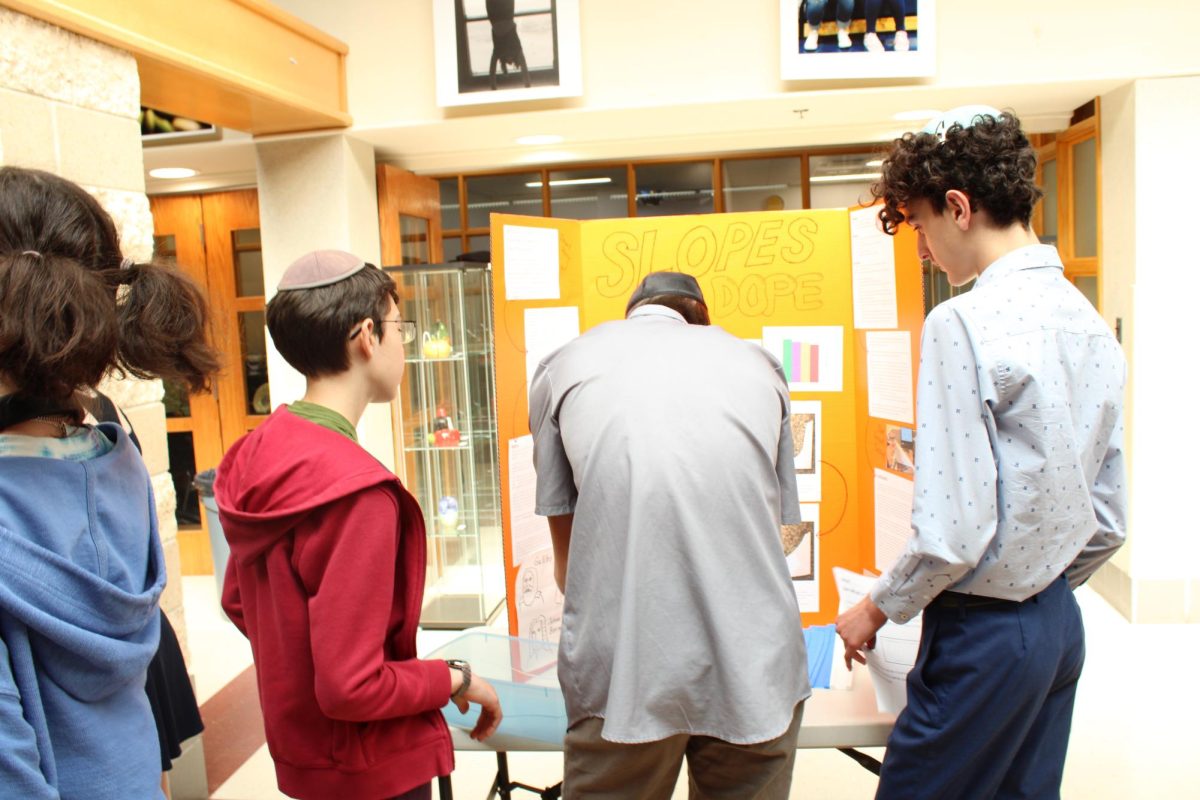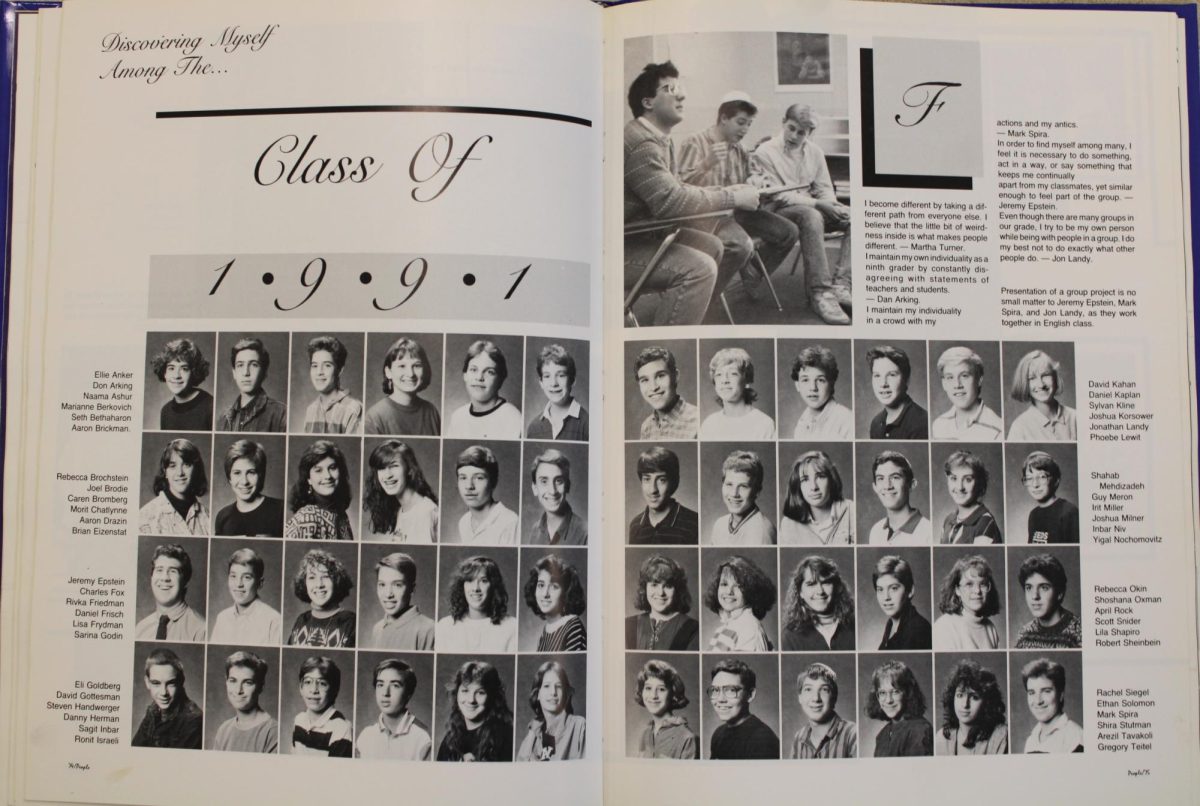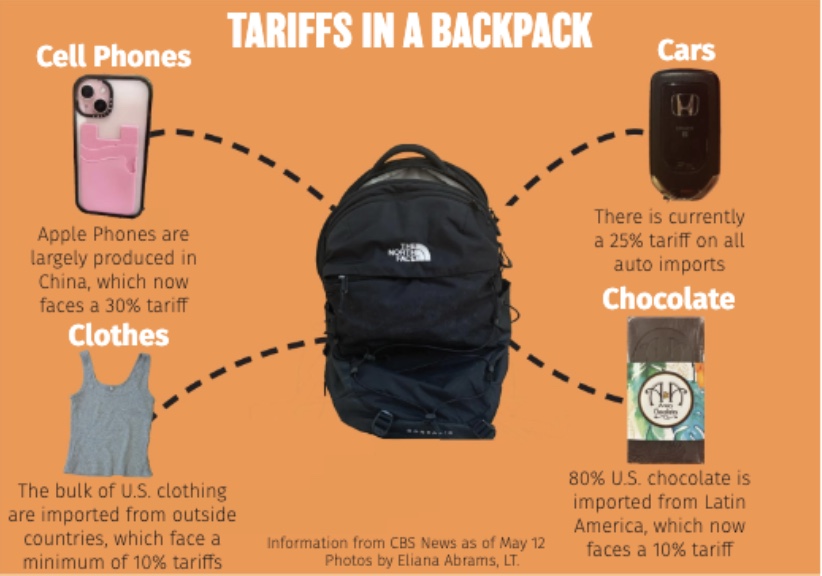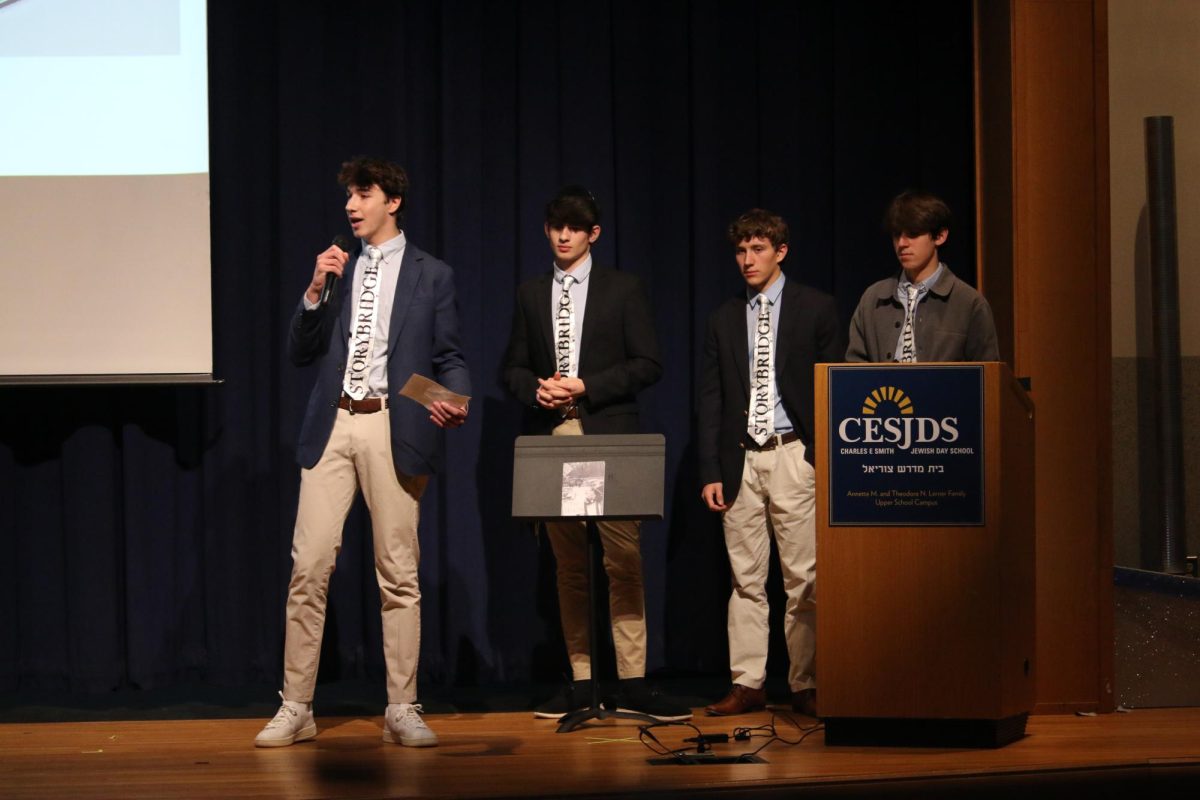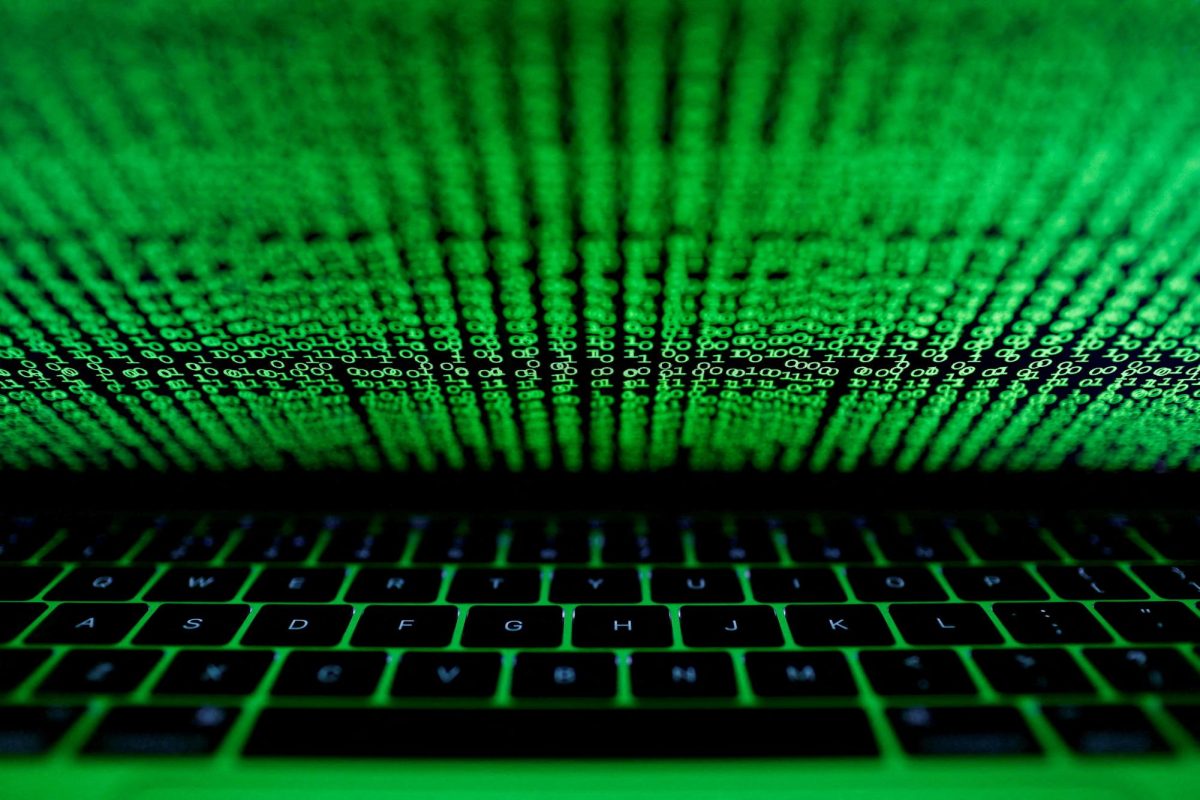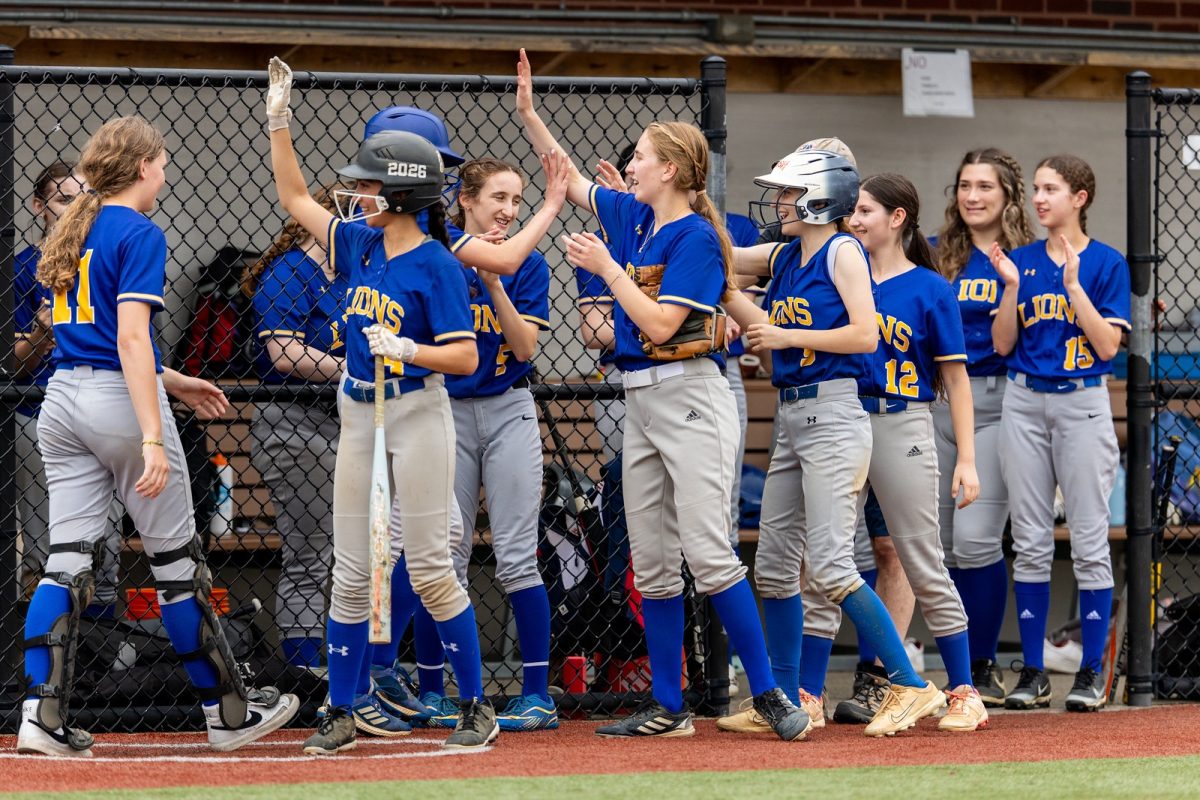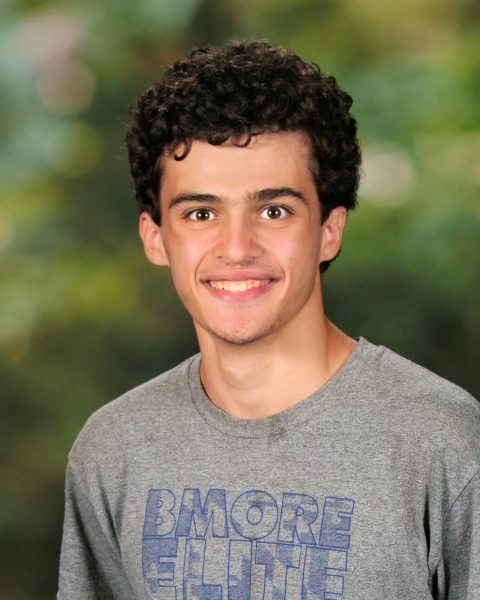Eighth grade students culminated their middle school science careers on May 23 by presenting the experiments they have been working on for four months at the annual science fair. The eighth grade science fair is designed to challenge students to create an experiment of their own instead of what is put on the set curriculum.
When beginning the project in January, students were tasked with developing a scientific question that they would then find an answer to in their experiments. These questions relied on their knowledge from many different branches of science, ranging from experiments about the optimal ingredients for meringue to the optimal conditions for growing plants.
One experiment, conducted by Reuvie Marcus, involved testing different sizes and folding patterns of paper airplanes. Marcus had the opportunity to take charge of the experiment on his own.
“We had to plan out what we needed for each experiment,” Marcus said. “We needed to plan out where we were going to do it, [and] how we were going to make all the materials and stuff. Then, we had to go to an indoor space that wasn’t windy so the lab was controlled.”
This year, Director of Upper School STEM Alexandra Brown noticed that it was difficult for students to work on the project with so much else going on, between things such as their capstone trip to Atlanta and their preparations for middle school graduation. So, to make it easier for future students, the science fair projects and fair will be moved to the end of the first semester instead of the end of second semester for the following years, according to Brown.
The goal of this project is for eighth grade students to learn more about the scientific process, which they have been learning about throughout their time learning science. Additionally, it is meant to prepare students for future science classes where they will have more independence with their experiments.
“I think it was kind of the new format of presentation that I’ve never done before,” Leslie Kieval said. “I’ve never done a science fair before. I think that will be useful for future projects that require hypotheses. And data was the hardest part. I spent seven hours collecting data. It was a lot. emotionally and physically, so that was probably the hardest part.
This project also helped students hone presentation skills. In preparation for the fair, students presented their projects to their peers and their parents, leaving a space for feedback at the end about how they presented. On the day of the science fair, the students were separated into two blocks so that they could listen and learn from their peer’s presentations as well as present their own projects.
“During this session where students aren’t presenting their own work, they’re expected to go to other people’s work, and I required them to go to four [other stations], but almost every student went to more than four because they wanted to go and like, support their friends and learn from their friends,” Brown said. “I thought that [them going to more than four stations] was just kind of a testament to their appreciation for science and also their appreciation for the hard work that everyone put into it.”


